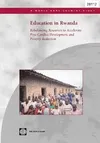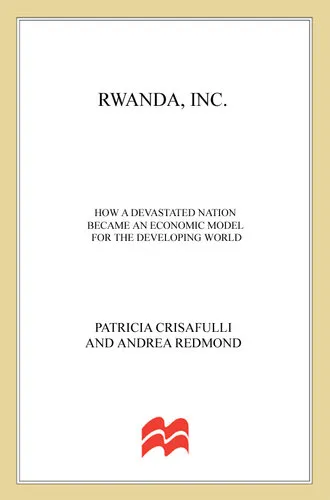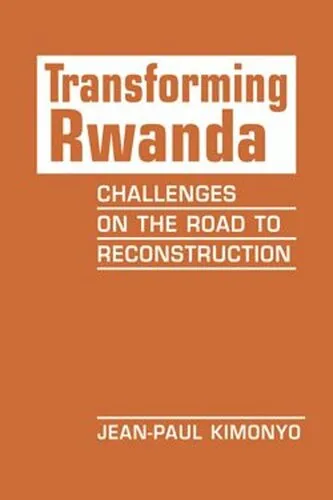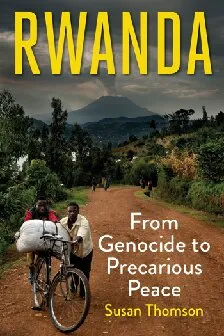Education in Rwanda: Rebalancing Resources to Accelerate Post-Conflict Development and Poverty Reduction
3.0
Reviews from our users

You Can Ask your questions from this book's AI after Login
Each download or ask from book AI costs 2 points. To earn more free points, please visit the Points Guide Page and complete some valuable actions.Related Refrences:
Introduction
In the wake of the devastating Rwandan genocide of 1994, the nation faced the monumental task of rebuilding its society from the ruins of conflict and poverty. The book "Education in Rwanda: Rebalancing Resources to Accelerate Post-Conflict Development and Poverty Reduction" delves into the pivotal role that education has played in Rwanda’s phenomenal reconstruction and development journey. This publication provides a comprehensive analysis of the strategies employed by the Rwandan government and international stakeholders to rebuild its educational infrastructure, ensuring inclusivity and quality at all levels.
Detailed Summary of the Book
The book initially sets the stage by exploring Rwanda’s historical context and the complex socio-political dynamics surrounding the education sector before, during, and after the genocide. It then meticulously outlines the array of policy reforms introduced to revitalize the education system, with a focus on achieving equitable access, improving quality, and fostering sustainable development.
Integral themes include the decentralization of educational administration, curriculum reforms, and teacher training. The role of technological innovations and public-private partnerships in propelling educational progress is also highlighted. Extensive case studies and statistical data provide valuable insights into the progress made, challenges faced, and lessons learned in the pursuit of educational equity and excellence in Rwanda.
Key Takeaways
- Equitable Access: Rwanda has made significant strides in providing equal educational opportunities, regardless of gender or socio-economic background.
- Curriculum Reforms: Emphasizing quality over quantity, the educational reforms include a focus on critical thinking, problem-solving, and technological literacy.
- Decentralization: By empowering local governments, Rwandan education has become more agile and responsive to the needs of diverse communities.
- Sustainability and Innovation: Integrating ICT in education and nurturing public-private partnerships have been crucial in addressing resource limitations.
Famous Quotes from the Book
"Education is not merely a tool for personal betterment but a communal, national antidote to the recursive cycle of conflict and poverty."
"Rwanda’s journey serves as a powerful testament to how education can transform a country's narrative from tragedy to triumph."
Why This Book Matters
This book is an essential resource for policymakers, educators, development practitioners, and scholars interested in understanding the transformative power of education in post-conflict settings. By documenting Rwanda’s unique educational renaissance, it serves not only as a record of tangible progress but also as a beacon of hope and inspiration for other nations grappling with similar challenges. The systemic approaches and innovative strategies detailed in this book offer replicable models that can be adapted to the unique contexts of other countries seeking sustainable development through education.
Free Direct Download
You Can Download this book after Login
Accessing books through legal platforms and public libraries not only supports the rights of authors and publishers but also contributes to the sustainability of reading culture. Before downloading, please take a moment to consider these options.
Find this book on other platforms:
WorldCat helps you find books in libraries worldwide.
See ratings, reviews, and discussions on Goodreads.
Find and buy rare or used books on AbeBooks.
1309
بازدید3.0
امتیاز50
نظر98%
رضایتReviews:
3.0
Based on 0 users review
"کیفیت چاپ عالی بود، خیلی راضیام"
Questions & Answers
Ask questions about this book or help others by answering
No questions yet. Be the first to ask!





